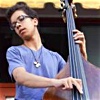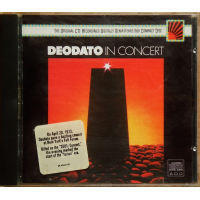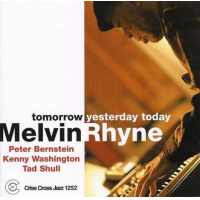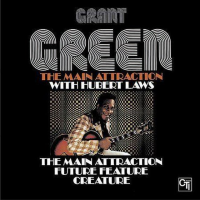Home » Jazz Articles » Liner Notes » Wallace Roney: Understanding
Wallace Roney: Understanding
From turntablist DJ Logic on Prototype to more recent young recruits, like bassist Rashaan Carter and turntablist Val Jeanty on 2007's Jazz, and drummer Kush Abadey on 2010's If Only For One Night and 2012's Home, Roney has been providing the same kind of in-the-trenches training ground for up- and-comers that he received in the early 1980s with everyone from drummers Art Blakey and Tony Williams to trumpeter Miles Davis, who took the young trumpeter under his wing as his protégé.
But Understanding is different. For the first time since joining the HighNote roster, Roney plays with an entirely young, unseasoned group. Previous recordings included his brother, saxophonist Antoine, as well as already established players like pianist Geri Allen, clarinetist Don Byron, and Miles alum, keyboardists Adam Holzman and Robert Irving III. But with a group of players where the youngest, bassist Daryl Johns, was just 16 at the time of this recording, where does Roney find players this good?
"They come to me," Roney says, chuckling, "because they really want to."
Understanding is also Roney's first record in over a decade not to use some form of electric instrument, whether it's turntables, Fender Rhodes or electric bass, but that doesn't mean there's any kind of paradigm shift going on; it's just how things turned out this time. "I don't look at instruments as whether they're electric or acoustic," Roney says, emphatically. "It seems like everybody else has a problem with that. The music can work with or without certain instruments; sometimes I use electric instruments for color, but as soon as I put electric piano on it, people want to call it funk or fusion. It's the same music, I'm playin,' regardless. I never understood it; well, I do understand it, but I wish they would stop putting labels on it. I don't mind the word "jazz"—innovative jazz or whatever—but when you're always trying to put the music in a certain place you limit it, commercially and artistically."
Looking back at Roney's career, even before he signed with HighNote, it's clear that he's always been working the same innovative continuum, the same overall premise, but one that's steadily evolving, year after year, album after album, gig after gig. "You need a more expansive way of looking at things," says Roney. "You're not trying to go back in time; you're trying to take what was great then and express it in today's format. There's always a bunch young cats around, but I use specific young cats. Everybody plays in a generic way now; they have 'generic chops.' But I don't want generic chops; I want the chops that everybody's afraid of, that everybody runs from. Nobody's trying to clone anybody; you try and take the best people and see how they can express the music their own way. The more you express it, the more the notes will start to change your way, and the more your feelings will start to come through."
What's also crystal clear from Understanding's opener—a smoking look at Roy Brooks' rarely covered title track, first heard on the drummer's sadly out-of-print The Free Slave (Muse, 1970)—is that Roney's new group is absolutely going for it every second, from Kush Abadey's explosive push-and-pull support and tenor saxophonist Ben Solomon's take-no-prisoners solo to pianist Victor Gould's more restrained feature and, of course, Roney's characteristic élan, a trumpeter who not only plays at the top of his game on each and every record, but one who continuously raises that game. "This was a band as it was transitioning between two piano players—Eden [Ladin] and Victor, who's now the regular pianist in the group," Roney explains, "so I chose these tunes to start getting a feel for what we were looking for, taking some classic tunes and seeing if we could put our approach on it. Roy was a friend and a great drummer, and I never got a chance to document my feelings for Roy on record after he passed [in 2005], so it was more a tribute to Roy; I knew him very well, he was just beautiful person."
But if the majority of Understanding's eight tunes are covers—in addition to the title track, two from pianist Duke Pearson (the incendiary swinger "Is That So" and more relaxed "Gaslight") and two from pianist McCoy Tyner (the indigo ballad "Search for Peace" and even more delicate "You Taught My Heart to Sing")—this is not a group that simply runs them down like some Real Book date. Instead, Roney's trust in a group of musicians whose oldest players are barely into their twenties—and despite having only played together for five months prior to heading into the studio—is unequivocal and unshakable. "These guys played like it was nothin,'" the trumpeter says. "They didn't have to resort to playing like the people that were on the original records, they were able to play the way they play; I took some tunes that I felt were nice, but also intricate harmonically. I didn't want to play tunes that I'd already played too much. So I needed something for them to play to see what we'd sound like, and it was a lot of fun. "
Still, these are young and hungry firebrands, so it's no surprise that "they were all going, 'We want to bring our tunes!' 'So you're all ready to be a band are ya?'" Roney recalls asking them, chuckling. So, bookended by the cover material come one tune each from alto saxophonist Arnold Lee (the fast-paced "Red Lantern") and Solomon (the harmonically complex, mid-tempo "Kotra"), along with Roney's "Combustible," which alternates between a fast blues and more open-ended solo spots, in particular for bassist Johns, who is unfortunately no longer with the group.
And it's a shame, because the group definitely has chemistry, even while everyone is on the road to finding their own voices. But it's Roney's own experiences being mentored that facilitate taking such young players of considerable promise and dropping them into a context where, sink or swim, they can really learn and grow.
"I tell you how it works going to the next level," Roney continues. "You get a bunch of young cats that are open-minded; they've got creativity and they won't fight you when you have an idea about how to do something. Guys my age will go, 'Oh man, why?' These young guys will go 'OK,' and they won't question it. My imagination can go where it wants and they're open to it. They don't even know what it's going to sound like because there's no preconceived anything. Everything is open. Whereas guys my age, they challenge it and fight it. I had a drummer in my band once, and I wanted to try this complicated thing. He says, 'Why? And I said, 'Because it's never been done before.'"
As Roney continues to groom up-and-coming musicians for the road ahead, his own path, his own ideas about himself remain clear as he demonstrates a strong respect for what's come before, even as he looks ahead to what comes after. At a time when some artists feel the only way forward is to reject tradition, it's that very repudiation that Roney steadfastly rejects.
"I do know what's different," he concludes. "I know what I'm trying to do is listen to the music that a lot of cats were playing. What I'm doing is based on my knowledge of and having been associated with all these great musicians when they were at their best, at their most fertile. The way they look at things, I try to use a lot of that too; maybe that's not happening in a lot of peoples' music, but that's my experience, so I'm bringing my experience to the music, what I like to the music. What I seem to feel is the key to opening up the universe with what the music is."
Liner Notes copyright © 2026 John Kelman.
Understanding can be purchased here.
Contact John Kelman at All About Jazz.
With the realization that there will always be more music coming at him than he can keep up with, John wonders why anyone would think that jazz is dead or dying.
Track Listing
Understanding; Is That So?; Search For Peace; Gaslight; Red Lantern; Kotra; Combustible; You Taught My Heart To Sing?
Personnel
Wallace Roney
trumpetArnold Lee
saxophone, altoDaryl Johns
bassKush Abadey
drumsEdin Laden
pianoVictor Gould
pianoBen Solomon
saxophone, tenorAlbum information
Title: Understanding | Year Released: 2013 | Record Label: HighNote Records
Tags
PREVIOUS / NEXT
Support All About Jazz
 All About Jazz has been a pillar of jazz since 1995, championing it as an art form and, more importantly, supporting the musicians who make it. Our enduring commitment has made "AAJ" one of the most culturally important websites of its kind, read by hundreds of thousands of fans, musicians and industry figures every month.
All About Jazz has been a pillar of jazz since 1995, championing it as an art form and, more importantly, supporting the musicians who make it. Our enduring commitment has made "AAJ" one of the most culturally important websites of its kind, read by hundreds of thousands of fans, musicians and industry figures every month.























